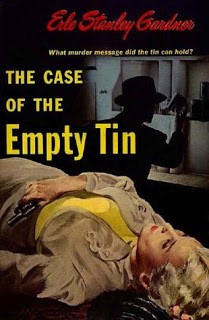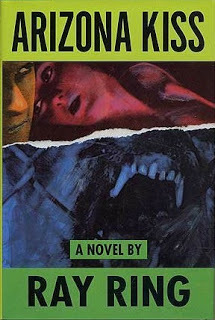James L. Thane's Blog, page 7
December 17, 2019
Another Excellent Novel from Kent Anderson
 Kent Anderson is not the most prolific of writers, but he certainly is one of the best, and he demonstrates this again with Green Sun, which was released last year. This is the third novel featuring a Vietnam-era Special Forces soldier-turned-cop named Hanson, following Sympathy For The Devil (1987) and Night Dogs (1996).
Kent Anderson is not the most prolific of writers, but he certainly is one of the best, and he demonstrates this again with Green Sun, which was released last year. This is the third novel featuring a Vietnam-era Special Forces soldier-turned-cop named Hanson, following Sympathy For The Devil (1987) and Night Dogs (1996).The first book detailed Hanson's experiences in the Vietnam War. The second followed his stint as a cop in Portland, Oregon. The new book, set in 1983, finds him as a thirty-eight-year-old rookie cop in Oakland, California, a city torn apart by crime and racial divisions. The city's police department doesn't begin to have the money or the manpower to police the streets effectively, let alone humanely. Hanson patrols some of the meanest streets in the city all by himself in squad car that is barely functional and rarely with any backup.
The police force is still overwhelmingly white, and the approach of most of the other white cops who patrol the black areas of the city is to impose their will on the citizens by brutal force, intimidating anyone who would dare challenge their authority. They are much less concerned about justice than they are about maintaining control and, inevitably of course, they have alienated the city's black population.
Especially in a situation like this, Hanson is a fish out of water. He's older than most of the other patrolman and even though he has experience as a cop in Portland, he's forced to start at the bottom of the department in Oakland. As a liberal arts graduate who briefly taught college before joining the Oakland force, he takes a different view of the job--one that immediately alienates his superiors and most of his fellow cops. Hanson is more of a social worker than a typical Oakland cop. Unlike his fellow officers, he'd much rather defuse a situation and send everyone home peacefully rather than breaking heads. Given that he is a white cop, he's automatically suspect and while he tries to build a rapport with the black citizens whom he is supposed to serve and protect, it's a hard uphill climb.
Hanson is mostly on duty at night, and the book follows him from one incident to another as he patrols his sector of the city, tries to serve the citizens as best he can, and attempts to keep his own bosses from coming down on him. It's a thankless and virtually impossible task, and in parts, the story is horribly bleak and depressing.
What lifts it up though, and what makes this such an engaging book, is Hanson's character. He's among the most solitary protagonists you will ever meet in crime fiction these days--a loner's loner. But at heart he is such a good and decent man, in spite of all of the problems he faces, that you can't help but root for the man and be inspired by him. Even above and beyond that is the quality of Kent Anderson's writing, which is simply beautiful even in spite of the horrors that unfold in the story.
Anderson was himself a Special Forces soldier and a beat cop both in Portland and in Oakland. Clearly he knows the territory, and this book, along with Night Dogs, are probably the most authentic novels about police work that you will ever read. Anderson's biography says that he may be the only person in the country's history to have been awarded two NEA grants as well as two Combat Bronze Stars, and clearly these experiences have served him and his readers well. A fantastic book and a great character than no reader will soon forget.
Published on December 17, 2019 16:16
December 12, 2019
Another Hilarious South Florida Romp from Carl Hiaasen
 This is another hilariously funny south Florida romp by Carl Hiaasen with a great cast of odd, strange and curious characters. At the heart of the story is Andrew Yancey who was formerly a police detective. Sadly, Yancy was booted from his job and demoted to being a pest inspector for the health department after he got into an altercation with a girlfriend's husband.
This is another hilariously funny south Florida romp by Carl Hiaasen with a great cast of odd, strange and curious characters. At the heart of the story is Andrew Yancey who was formerly a police detective. Sadly, Yancy was booted from his job and demoted to being a pest inspector for the health department after he got into an altercation with a girlfriend's husband.Yancy is desperate to get back his detective rank, and sees his opportunity when he becomes entangled in a web of disasters that involves a missing reality TV star, a self-absorbed Hollywood agent, a would-be reality star named Blister, an unscrupulous attorney who stupidly becomes addicted to a dangerous male-enhancement product produced by a company he's suing, a guy who owns a firm called Sedimental Journeys that steals pristine sand from one Florida beach and sells it on another, a handful of mobsters, a herd of giant rats, and a woman named Merry Mansfield who is working a racket in which she fakes vehicular accidents while shaving herself in parts best left undescribed in a family-friendly review like this.
Hiassen walks a very narrow tightrope here in weaving a story that sometimes veers very close to going over the edge, and some readers may feel that he has actually done so. But if you're in the right mood, this may well be the funniest book you've read in a long time.
Published on December 12, 2019 11:39
December 4, 2019
Jack Reacher Finds Trouble in West Texas
 After he accidentally beats up a cop in a small west Texas town, Jack Reacher need to get out of town in a hurry. (Of course, he didn't accidentally beat up the cop; he did it on purpose. But when the guy picked a fight with Reacher, Jack didn't know he was a cop.) Happily, only a few minutes after sticking out his thumb, Reacher is picked up by an attractive Hispanic woman named Carmen Greer in an air-conditioned Cadillac.
After he accidentally beats up a cop in a small west Texas town, Jack Reacher need to get out of town in a hurry. (Of course, he didn't accidentally beat up the cop; he did it on purpose. But when the guy picked a fight with Reacher, Jack didn't know he was a cop.) Happily, only a few minutes after sticking out his thumb, Reacher is picked up by an attractive Hispanic woman named Carmen Greer in an air-conditioned Cadillac.Poor Mrs. Greer has a problem. (Wouldn't you just know it?) She tells Jack that she was born into an upper class family in northern California, but her family disowned her after she married into a very strange and wealthy Texas family. (Her family didn't like the fact that she had married a white guy, let alone a Texan.)
The Greers own a huge ranch out in the middle of nowhere, and practically from the day she married him, Carmen's husband has been beating her. He stopped a year and a half ago when the husband went to prison for tax evasion, but he's getting out in a couple of days and Carmen is terrified because she knows that the beatings will begin all over again. Isn't there some way that Jack could help her?
Reacher is drawn into the mess by Carmen's sad story, particularly after he meets Carmen's charming little daughter. The daughter is the reason why Carmen can't just take off and leave her husband, and so Jack gets a job on the ranch as a hand to assess the situation and see what he can to do protect Greer.
In the meantime, there's a group of hired assassins running around, making life difficult for a lot of people and complicating Reacher's problem as well. When all these ingredients are thrown into the mix, Reacher will have to be on his toes if he's going to survive this mess, let alone save Carmen and her daughter.
This is a fairly typical Reacher novel. It moves along at a good clip and keeps the reader riveted to the page. There are a lot of fun twists and turns and a great climax--all in all, a very good read.
Published on December 04, 2019 15:19
December 1, 2019
Perry Mason Tackles a Particularly Complex Case
 First published in 1941, this is, to my mind at least, one of the least successful of the Perry Mason novels. But then, in a series that runs to eighty-five books, I suppose there's bound to be a clunker now and then.
First published in 1941, this is, to my mind at least, one of the least successful of the Perry Mason novels. But then, in a series that runs to eighty-five books, I suppose there's bound to be a clunker now and then.A murder may have been committed on the ground floor of an apartment building. (There's no body, but there is a lot of blood and Lieutenant Tragg and the rest of the force are treating it as a potential homicide.) The guy who lives in the upstairs apartment is an invalid and a recluse and he does not want to get involved in the investigation. So he hires Perry Mason to come over and shield him from the cops. One would think that, if you're attempting to deflect attention away from yourself, it would NOT be a good idea to have the city's most famous defense attorney standing in your living room when the cops come calling, but that's just my humble opinion.
It takes a long time to determine if a murder actually has been committed, and in this case, Perry will spend no time in court at all. Rather, he will spend the entire book running around attempting to decipher a plot that makes absolutely no sense at all. It involves a suspicious boarder, a house with a lot of mysterious doors leading here and there, a nosey spinster, guys wearing wigs, people running guns in China, and other people scratching coded messages on the lids of tin cans. At one point, Perry is attempting to explain part of what is happening to his secretary, Della Street, when she throws up her hands and says, "I'm sorry, Chief, but I'm all topsy turvy!" To which, the reader can only reply, "Don't worry, Della, you're not the only one..."
Of course, Perry will ultimately get it all sorted out and given a couple of critical clues, most readers will actually get there ahead of him. Still, this book is something of a mess, and a person probably would not want to spend a lot of time attempting to make sense out of it. It's much better just to sit back and let Perry, Della and Paul go about their business and enjoy the various exchanges that take place.
My favorite part of the book occurs a little over halfway through. A little after five o'clock on a busy afternoon, Perry suddenly decides that he needs to make a quick trip to San Francisco. From downtown L.A., he calls the airport and books tickets on a flight leaving at six o'clock. He then calls Della and tells her to meet him at the plane. Della replies that she'll just take time to put on some makeup and then head on out from downtown to the airport. Perry tells her to "Make it snappy," and hangs up. Even though the late afternoon rush is on at the airport, they both make it and are relaxing in their seats when the plane leaves on time at six o'clock! Those must have been the days...
Published on December 01, 2019 15:49
November 19, 2019
Wilma Rathjen Is a Troubled Woman on a Roof in This Novel from Helen Nielsen
 The Woman on the Roof was first published in 1954 and has now been published in a new edition by Stark House. At the center of the story is a woman named Wilma Rathjen who has just returned home from a sanitarium following a nervous breakdown. Her brother, Curtis, is a landlord and he has created a home for Wilma in a small apartment above a garage in a complex that he owns. Wilma lives there with her cat and has taken a job at a bakery, but she's still clearly nervous and unsettled.
The Woman on the Roof was first published in 1954 and has now been published in a new edition by Stark House. At the center of the story is a woman named Wilma Rathjen who has just returned home from a sanitarium following a nervous breakdown. Her brother, Curtis, is a landlord and he has created a home for Wilma in a small apartment above a garage in a complex that he owns. Wilma lives there with her cat and has taken a job at a bakery, but she's still clearly nervous and unsettled.Wilma is particularly unnerved when she looks down from her apartment one night into the window of one of the other units in the complex and sees a young woman lying dead in a bathtub. Or does she? Wilma fears that she might be imagining the sight and worries that if she reports it and it turns out not to be true, she could be taken back to the sanitarium.
Accordingly, she makes no mention of what she has seen and when the body is discovered, two days later, Wilma feigns ignorance. Initially it appears that the woman died accidentally when her hair dryer fell into the tub and electrocuted her. But then the detective investigating the death, a Sergeant Osgood, begins to notice a number of strange things going on in and around the complex where the young woman died. He also notes that poor Wilma Rathjen is not the only odd, strange and curious character who's living there. As Osgood digs deeper into the mystery, Wilma finds herself, or imagines herself, in increasing trouble and her own survival may be at stake.
This is a mystery that seems very much of its time, and as a crime novel it really hasn't aged all that well. There are no clues that would really enable a reader to anticipate the guilty party and, frankly, by the end of the book, it really didn't seem to matter, at least not to this reader, who the guilty party was. However, the book is a fairly interesting psychological portrait of a woman who may or may not be imagining the dangers that surround her. The author has very skillfully drawn the character of Wilma Rathjen, and the reader can't help caring about her and wondering what might become of her. An interesting read both for that and as a glance back to the nature of the mystery novel three-quarters of a century ago.
Published on November 19, 2019 16:21
November 12, 2019
P.I. Roland Ford Is the Last Good Guy in This Novel from T. Jefferson Parker
 The third novel in T. Jefferson Parker's Roland Ford series finds the Southern California P.I. sitting in his office when--lo and behold!--an attractive woman walks in looking for help. The woman is Penelope Rideout, and her younger sister, Daley, is missing. Their parents died years earlier and Penelope, who is fourteen years older than Daley, became her sister's legal guardian. Daley, who is now nearing fourteen, has become something of a handful, as teenagers are wont to do. She has fallen in with what Penelope deems to be "bad company," and has now disappeared.
The third novel in T. Jefferson Parker's Roland Ford series finds the Southern California P.I. sitting in his office when--lo and behold!--an attractive woman walks in looking for help. The woman is Penelope Rideout, and her younger sister, Daley, is missing. Their parents died years earlier and Penelope, who is fourteen years older than Daley, became her sister's legal guardian. Daley, who is now nearing fourteen, has become something of a handful, as teenagers are wont to do. She has fallen in with what Penelope deems to be "bad company," and has now disappeared.Roland agrees to try to find the girl, which should be a piece of cake for a reasonably competent P.I., but in a book like this, nothing is ever as it seems, and a simple case will quickly turn difficult, confusing and deadly.
Bad things are happening in the Southern California desert, involving white supremacists, a creepy but very popular televangelist, and secrets that go back for years. Somehow, Daley Rideout has gotten mixed up in their plots and schemes. Ford has no idea who he can trust--his own client included--and he's going to have to endure a lot of pain, physical and otherwise, if he's going to survive this mess and complete his assignment.
Roland Ford is an attractive and unique protagonist. Like several other protagonists of his age in books like this these days, he's a veteran of the wars in the Middle East, and has been seriously affected by his experiences there. He's still mourning the death of his wife who was killed in a plane crash and lives in a compound with several other interesting but wounded characters. But like the first P.I. in the first novel where such a character was sitting in his office when a beautiful, troubled woman walked in, Ford will stop at nothing to see that justice is finally served. A good read that should appeal to anyone who enjoys a good hard-boiled P.I. Novel.
Published on November 12, 2019 14:15
November 7, 2019
A Recent Widow Finds Herself in Peril in This Psychological Thriller from Lisa Unger
 Poppy Lang and her husband, Jack, were successful photographers who traveled the world before settling in New York and opening an agency. On the surface, they appear to be living a charmed life, although as is often the case, especially in a psychological thriller like this, there may be problems lurking just below the surface. But when Jack is killed, apparently at random while out for an early morning jog, Poppy descends into a year-long depression and her life begins to come apart at the seams.
Poppy Lang and her husband, Jack, were successful photographers who traveled the world before settling in New York and opening an agency. On the surface, they appear to be living a charmed life, although as is often the case, especially in a psychological thriller like this, there may be problems lurking just below the surface. But when Jack is killed, apparently at random while out for an early morning jog, Poppy descends into a year-long depression and her life begins to come apart at the seams.Shortly after the funeral, Poppy disappears, leaving her mother, her best friend, and everyone else who cares about her worried sick. She surfaces a few days later, wearing a red party dress, with no memory of where she has been or what she has done. Even with the help of caring friends and a therapist, she's having trouble putting her life back together and a year after her husband's death, she still appears to be on a downward spiral.
Part of the problem is that, in addition to the small dose of sleeping pills that the therapist has prescribed, Poppy is self-medicating with pills given to her by her best friend, Layla. She's also drinking heavily and thus, not surprisingly, her sleep is disturbed by powerful and troubling dreams. Even worse, she seems to be dreaming and perhaps imagining things while she's allegedly awake. She becomes convinced that a mysterious hooded man is following her. She begins to "see" Jack, and before long, she no longer knows what's real and what is not.
Neither do we. Poppy is a classic unreliable narrator, and as the story progresses the reader sometimes has a hard time distinguishing between Poppy's dreams and reality, just as she does. One would hope, as Poppy does, that if the police could only clear the case and find Jack's killer, this would provide some closure. The only question is whether or not Poppy will survive and remain sane until this can happen.
On the whole I enjoyed this book, although I thought it ran on a bit and was perhaps fifty to a hundred pages longer than it needed to be. For much of the book, Poppy seemed to be going around in circles and, as a reader, I thought there might have been one or two many trips around the same track. I also really disliked Layla, Poppy's best friend since they were children. She was way too domineering and I kept waiting for Poppy to finally tell her to back off a bit. I also wonder what kind of a "friend" keeps pushing pills and alcohol on a woman in such a fragile state.
By the time the climax finally arrived, I was pretty sure I knew where it was going; still the pace picked up significantly in last one-third of the book or so and in the end, I enjoyed it. 3.5 stars rounded up to four.
Published on November 07, 2019 13:43
November 5, 2019
Philip Marlowe Goes Looking for a Missing Man in This Classic from Raymond Chandler
 The fifth full-length novel featuring Raymond Chandler's Philip Marlowe opens with the private investigator bored nearly to death when a young woman named Orfamay Quest from Manhattan, Kansas comes into the office and asks Marlowe to find her older brother, Orrin. Orrin came out to California and has recently disappeared. Naturally, all the folks back home are very worried.
The fifth full-length novel featuring Raymond Chandler's Philip Marlowe opens with the private investigator bored nearly to death when a young woman named Orfamay Quest from Manhattan, Kansas comes into the office and asks Marlowe to find her older brother, Orrin. Orrin came out to California and has recently disappeared. Naturally, all the folks back home are very worried.Orfamay appears to be a timid young woman who has led a very sheltered life and who is like a fish out of water in California. Naturally, though, behind that shy and mousy exterior, there lurks a potentially very sexy and beautiful young woman. She seems desperate and down on her luck, especially what with with poor Ma and Pa back home in Kansas wondering what has become of their son, so Marlowe takes the case for a fee of twenty bucks and starts with Orrin's last known address, a seedy hotel in Bay City, a fictional suburb. The brother has left the hotel but before Marlowe can get out of the dump, someone will be stabbed with an ice pick and Marlowe will already be in deep trouble.
As is usually the case in these novels, the bodies will continue to pile up. There's murder, blackmail, drugs, sex and a plot that will become convoluted almost to the point of being indecipherable. But who cares? As always, one reads a Raymond Chandler novel not for the plot, but for the characters and the great dialogue and narrative descriptions as, for example, when we first meet Orfamay:
"She didn't have to open her mouth for me to know who she was. And nobody ever looked less like Lady Macbeth. She was a small, neat, rather prissy-looking girl with primly smooth brown hair and rimless glasses. She was wearing a brown tailor-made and from a strap over her shoulder hung one of those awkward-looking square bags that made you think of a Sister of Mercy taking first aid to the wounded. On the smooth brown hair was a had that had been taken from its mother too young. She had no make-up, no lipstick and no jewelry. The rimless glasses gave her that librarian's look."
Like all Raymond Chandler novels, this one is a great read and it's hard to imagine a fan of classic, hard-boiled crime novels that wouldn't love it.
Published on November 05, 2019 12:15
October 31, 2019
A Photojournalist Finds Himself in Big Trouble Out in Sunny Arizona
 The protagonist of this dark, hard boiled novel is a guy known simply as Macky who works for a newspaper in Tucson, Arizona. Macky is a photojournalist who specializes in exposing corruption and he'll do basically whatever it takes to get the story he's looking for.
The protagonist of this dark, hard boiled novel is a guy known simply as Macky who works for a newspaper in Tucson, Arizona. Macky is a photojournalist who specializes in exposing corruption and he'll do basically whatever it takes to get the story he's looking for.Fresh off a story exposing corruption in the mining industry, Macky gets a call from a mysterious woman who wants him to investigate a local dog fighting ring and, in the process, take down a powerful, sanctimonious, hypocritical judge. Macky agrees to do so and thereby makes the classic mistake that every protagonist always seems to make in a novel like this by getting involved with The Wrong Woman.
In this case, the woman is Alice Malone. She's in an abusive relationship with the aforementioned judge and basically wants Macky to rescue her and give the judge his just desserts. Naturally, Alice is damaged goods, and, of course, she's also extremely sexy and very nasty. In short, there's no way Macky will be able to resist her and once they've met, you know that the poor boy is in for a very rocky ride.
Arizona Kiss is a sleazy, gritty tale--like a twenty car pile up that's taking place right in front of your eyes that you can't look away from. Ring's writing is raw and visceral, and his descriptions of Arizona will not have endeared him to the State Tourism Board. The plot moves at a brisk pace, descending as it must, into an inevitable sort of hell, and the book should appeal to any reader who likes hard boiled crime novels. It may be hard to find, but the search is well worth it. Thanks to my GR friend Jeffrey Keeten for alerting me to it.
Published on October 31, 2019 13:14
October 22, 2019
At one time or another, I've read all of the novels writt...
 At one time or another, I've read all of the novels written by Dick Francis, and I'm now working my way through them again in order and reviewing them here. I'm sorry to say that Hot Money did not work for me at all.
At one time or another, I've read all of the novels written by Dick Francis, and I'm now working my way through them again in order and reviewing them here. I'm sorry to say that Hot Money did not work for me at all.A Dick Francis novel usually follows a fairly definite pattern: The protagonist is a single male, almost always associated in some way or other with the world of horse racing. He's almost always single, although there may be a woman working her way into his life. He's usually quiet, but tough, smart and very resourceful. People almost always underestimate him. In most cases he's up against a tough, ruthless, vicious villain who almost always remains in the background until the end of the book. Usually, the protagonist will have to be severely tested, often through a gruesome physical ordeal, before he triumphs over his adversary and order is restored.
In this case, though, Francis departs from the formula and, to my mind, both the story and the reader suffer as a result. The protagonist is Ian Pembroke, an amateur jockey who somewhat resembles the usual Francis hero. He's the son of a very wealthy metals investor named Malcolm Pembroke. The elder Pembroke has been married five times and has produced nine children. All of them, save for Ian, appear to be severely maladjusted, as are the people to whom they are married.
Ian is unmarried and has no woman in his life, save for a married woman with whom he has an occasional tryst. There may be psychological issues involved here, but then it would seem that everyone in this novel could benefit from a few hours spent on the couch of a capable analyst. Ian and his father haven't spoken in three years. Ian made a critical comment about his father's latest wife and Malcolm punched him, breaking his nose and severing the relationship.
Now, someone has murdered the wife and is attempting to kill Malcolm, so Malcolm turns to Ian for help. (Naturally, his father has now realized that Ian was correct in his assessment of the woman's character.) For whatever reason, Ian still loves his father and is the only one of his children who is not grasping after the old man's money. He will spend the rest of the novel moving Malcolm around, trying to keep him out of harm's while he figures out who's attempting to kill him.
In this case though, it's no shadowy, malevolent figure. It seems clear from the beginning that the villain is someone in Malcolm's own family. Although he has settled trusts on all of his adult children, they are, for the most part, irresponsible, not very capable, greedy, grasping, ungrateful slobs, desperate for more money from their father. They all seem to hate Ian, believing for some inexplicable reason that he is their father's favorite and that he's attempting to cut them out of the will.
My problem with this book is that all of the characters seemed particularly unattractive and unappealing. Apart from Ian and Malcolm, I disliked all of them intensely and so really didn't care what happened to them. Ian was okay, but not nearly as appealing as most Francis protagonists. There was very little tension in the novel and very little suspense. Even though someone was apparently attempting to kill Malcolm and maybe even Ian, I was never really worried about them, and when the whole business was finally resolved I found the conclusion to be laughably absurd and unbelievable.
Anyone who writes as many books as Dick Francis did is bound to produce a clunker or two now and then and IMHO, that's the case here. That said, I realise that I am out of step with most of the other people who have reviewed this book here. I'm glad it worked for them, but a generous two and a half stars for me, rounded up, knowing that the next Dick Francis novel I read is bound to be better than this one.
Published on October 22, 2019 09:19



